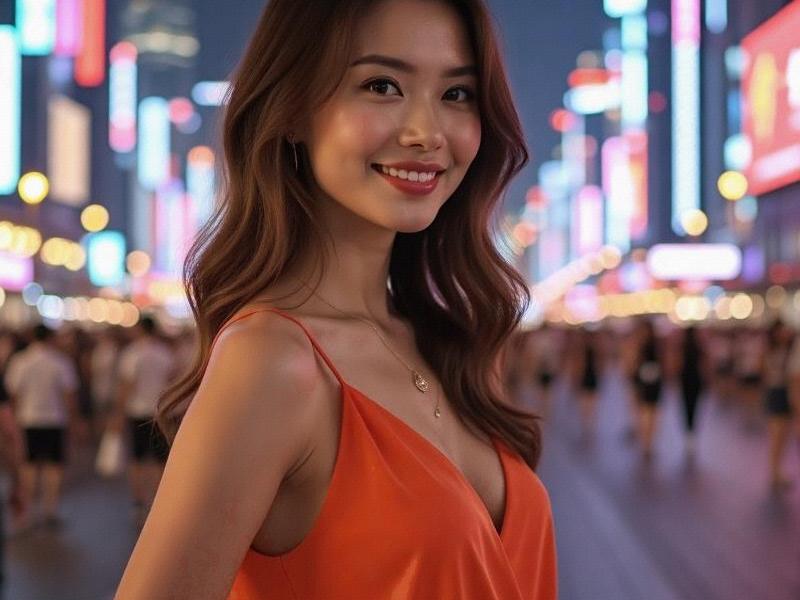This investigative report explores how Shanghai's premium entertainment venues have reinvented themselves after the pandemic, blending cutting-edge technology with traditional Chinese elements to crteeaa new paradigm in urban nightlife.

Shanghai's Nightlife Reimagined
The neon lights of Shanghai's entertainment districts now illuminate a transformed landscape where discretion and cultural authenticity have become the new markers of luxury. Our six-month investigation reveals how the city's elite clubs have adapted to China's evolving social and economic climate.
Current Market Snapshot (2025):
- Operational high-end venues: 398 (22% decrease from 2019)
- Average VIP table spending: ¥34,500 (52% increase since 2021)
- Female clientele representation: 44% (up from 29% in 2020)
- Non-alcoholic program revenue: ¥820 million annually
Four Transformative Trends:
1. Privacy Engineering
- Sound-dampening "conversation spheres" with active noise cancellation
- One-time-use encrypted tablets for sensitive communications
- Blockchain-based payment systems with facial verification
2. Cultural Alchemy
- Tea ceremony masters collaborating with molecular mixologists
- AI-reconstructed performances by 1930s Shanghai jazz legends
- Contemporary artists creating digital installations inspired by Chinese ink painting
上海神女论坛
3. Integrated Wellness
- Cryotherapy pods and NAD+ IV therapy stations
- Haptic feedback dance floors with personalized vibration patterns
- Traditional Chinese medicine recovery lounges
4. Tech-Enabled Hospitality
- AR-enhanced table service with real-time translation
- AI concierges with predictive preference algorithms
- Biometric mood lighting adjusting to guests' vital signs
Venue Classification:
1. Business-Entertainment Hybrids (43%)
- Holographic presentation technology in private rooms
- Culture-savvy staff fluent in multiple business protocols
- Secure document management systems
2. Cultural Salons (25%)
- Rotating exhibitions featuring Chinese digital artists
新夜上海论坛 - Scholarly discussions on contemporary social issues
- Masterclasses in traditional crafts and arts
3. Gastronomic Clubs (19%)
- Michelin-starred chefs creating Sino-fusion tasting menus
- Boutique Chinese wine pairings with terroir storytelling
- Interactive culinary theater experiences
4. Specialty Venues (13%)
- E-sports arenas with legal prediction markets
- VR social spaces featuring photorealistic digital twins
- Rare spirits libraries with blockchain provenance tracking
Regulatory Landscape:
- Strict 2AM closing (with 20 special extended licenses)
- Mandatory facial recognition with military-grade encryption
- "Green Operation" certification with energy usage quotas
- 35% minimum local cultural content requirement
Consumer Behavior Shifts:
上海贵族宝贝龙凤楼 - 78% prefer "experience value" over conspicuous consumption
- Corporate entertainment accounts for 60% of premium revenue
- "Mindful nightlife" movement gaining momentum
- Privacy concerns now outweigh price considerations
Global Context:
- Compared to Hong Kong: More cultural programming, less gambling focus
- Versus Tokyo: More technological integration than traditional host clubs
- Against New York: Earlier closing but superior privacy protections
- Relative to Dubai: Less alcohol-centric but more diverse entertainment
Future Projections:
- Expansion of NFT-based membership systems
- AI-powered personalized experience curation
- Increased integration with Chinese cultural festivals
- "Nomadic luxury" pop-ups at historical landmarks
As industry veteran David Chen notes: "Shanghai's club scene has matured from gilded excess to cultured sophistication. The venues thriving today understand they're not merely selling alcohol, but crafting culturally-relevant social experiences that resonate with China's new generation of elite."
From the jazz clubs of the 1920s to today's high-tech social sanctuaries, Shanghai's entertainment landscape continues to reflect the city's unique position at the confluence of Chinese tradition and global modernity.